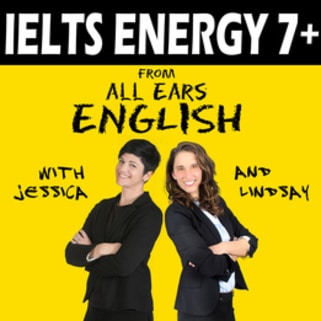
You may think you know everything there is to know about modal verbs.
We often call these “helping verbs,” because they work with other verbs.
Likely, you learned about them years ago.
However, we see students make mistakes with these all the time!
Errors happen often in both Writing and Speaking.
What modal mistakes are students making?
Modals must be followed by the bare infinitive.
- no “to” before the verb
- no verb-ing
If the question is, “Should people spend more time outdoors?”
Wrong: “People should to go to the park.”
Wrong: “Everyone must to exercise.”
Wrong: “People can to lose weight.”
Wrong: “All kids must going to the park.”
What tricks on the IELTS exam deal with modals?
They will use small words that you might ignore which change the meaning entirely.
“She may go to the store later.”
“She will go to the store later.”
These do not mean the same thing!
The modal verbs carry a lot of meaning.
Students are often confused by these in T/F/NG and Y/N/NG questions.
They must agree for the answer to be correct.
Strategies Created by a Former IELTS Examiner

100% Score Increase Guarantee with our Insider Method
Are you ready to move past IELTS and move forward with your life vision?
Find out why our strategies are the most powerful in the IELTS world.
When you use our Insider Method you avoid the BIGGEST MISTAKES that most students make on IELTS.
Click here to get a score increase on IELTS. It’s 100% guaranteed.
Replacements for “should.”
If the question has the word “should”, don’t repeat it.
Besides, “should” is wishy washy and boring!
Use a synonym!
- must
- have to
- have got to
Use native pronunciation for these.
I have to and I have got to both become “I gotta.”
This is informal but is used often by natives.
It can be used for all 3 Speaking parts, but not Writing Task 2.
Add adverbs
- simply must
- totally have to
- absolutely have got to
These improve your Vocabulary score because you’re using more interesting, less common words.
It will also improve your Pronunciation score, as you can emphasize the adverb.
Example phrases
Should people spend more time outdoors?
- Children absolutely have to get outside several times a day. Adults, as well, simply must get out or they’ll go crazy.
Is it necessary for governments to provide free school lunches?
- It is a priority. Kids have got to have food to function. Governments absolutely have to provide lunch for kids so they have an equal footing at school.
Practice Exercises
Rewrite the following sentences, correcting any mistakes.
- Politicians simply have got to making the environment a priority.
- I absolutely must to go to Hawaii one day!
- We certainly have to visiting our grandparents often.
Check the comments for answers!
Takeaway
Modal verbs, or helping verbs, do have meaning.
Don’t skip over them because they’re small in Reading and Listening.
Use parallels for “should” to avoid repeating the question or yourself.
Don’t put “to” after a modal verb, and don’t make it verb-ing.
You need to know where you’re starting, so take our 2-minute quiz to get your estimated band score.
You’ll then get free resources catered to your level.
What questions do you have from today’s episode?
Please leave a comment below.








